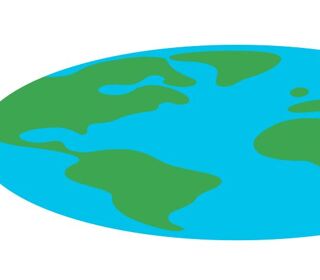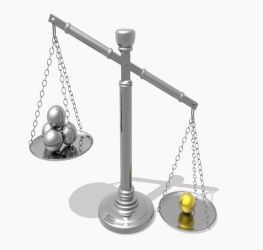
Blog

This blog post was written as a thought piece following re-reading of Teaching to Transgress by bell hooks. I draw upon hooks’ ideas of teaching as a ‘performance’ mediated by language, powerful in generating forces towards both freedom or oppressive restriction. The post challenges educators to consider their own ‘performances’ in the classroom and how language may be used to signal obedience or transgression. We decide…
Education is Change
Education is Change. The ‘classroom’ a stage where the performances of persona undergo transformational processes. Where behaviours, words, gestures, transgressions, rewards and hierarchies are mediated by (in)visible forces of power; from within and without. Education is Change as classroom actors negotiate time, space and situation towards new destinations; loaded with renewed quotients of Cultural Capital. Education is Change. Change from one state to another. Habitus in motion.
Education is Motion, but what is ‘desirable’, ‘positive’ motion and who decides? What does it mean to ‘graduate’ (verb. ‘to move forward or improve’) and who sets the socio-cartographic coordinates? What is ‘improvement’? Who holds the power to define correct movement or improvement and what are the unseen alternatives? How do these powers ‘play out’ upon the stage of the classroom? Whether classroom actors seek awareness of their roles and the connotations of action or not, ‘Education is never politically neutral’ (hooks, 1994: 30) and performances generate forces for or against this ‘correct’ direction of travel.
Education is Freedom and Restraint. ‘These days, I am compelled to consider what forces keep up moving forward (hooks, 1994: 30)’. The weightings, forces, gravities, biases and values which interact, strengthen, diminish, conflict and combine within the classroom have the power to both facilitate personal movement or restrict; to widen and loosen boundaries or tighten and restrain. To teach/learn (Freirian Teacher/Students…) to transgress is to unveil these forces and to understand the limits, possibilities and potentialities that exist across the stage of power and into ‘the world’. Education becomes the ‘Practice of Freedom’ through first a critical unveiling, to assess the forces which restrict. The restrictive forces of hegemonic ‘common-sense’ mediated through the en-cultured panopticon of the self and the selves of others. Teaching/Learning to Transgress is to develop languages to articulate our situationality and to encounter the illusory boundaries cast by the (internal/external) gate-keepers of cultural ‘sensibility’. Education can be both the linguistic practice of Freedom or Restraint.
Language is Power. ‘Like desire, language disrupts, refuses to be contained within boundaries. It speaks itself against our will, in words and thoughts that intrude, even violate the most private spaces of mind and body’ (hooks, 1994: 167). Education as the Practice of Freedom is to develop and wield the weapon of Language against the boundaries of self and against the restrictive linguistic forces of the dominant. Learning to speak the language of the dominant (i.e. Neoliberalist logic of all social actions measured against market-led metrics) is an important first stage to understand agency (‘”This is the oppressor’s language yet I need to speak it to you”’ (hooks 1994:167)). To master then subvert this Language subsequently becomes the transgressional act; moving through linguistic ‘gates’ of power purposefully towards erasure of these same restrictive boundaries. Language is Power in it’s potential use as a force of hermeneutical expansion of self and society, dissolving the liminal spaces of restrictive containment. Teaching/Learning to Transgress is to learn and apply the power which Language yields. ‘The power of this speech is … that it also forges a space for alternative epistemologies – different ways of thinking and knowing that were (are) crucial to creating a counter-hegemonic world view’ (hooks, 1994: 171). Hegemony withers when complicity is withdrawn.

The ‘rituals of control’ processing within the classroom, towards ‘prison confinement’ (hooks 1994: 4), seek to define ‘correct’ language; correct obedience and assimilation to hegemonic power. Teaching to Transgress is to examine these rituals of control and consider opposition; opposite forces and directions of motion. De-colonising, De-Schooling (Illich, 1971), Anti-Assimilationist, Anti-Racist, De-Neoliberalising… – these processes are syntactically associated with the ‘negative’ or the ‘anti’. Processes which provide potentiality for transgressive, alternative motion and the dissolution of boundaries of control. Processes which develop ‘weights’ of opposing force upon the ‘scales’ of hegemony. Teaching to transgress is to unveil these forces of power and to interrogate, through Language development, Language itself and the connotative powers playing out across social-situationalities towards new futures and Freedom of agency.
As teachers we must self actualise first, to interrogate how we unknowingly deploy our linguistic forces and to problem-pose who we are teaching for, why and how. What are the performances of power we enact and how have our own masks of conditioned persona been crafted; ’Teaching as a performative’ (hooks, 1994: 11) upon the stage of the classroom. What ‘ills’, ‘conditions’ and conditioning do we bring and to what extent does our identity stake its survival on the power vested in the transubstantiated institutional capital bestowed upon us through historic demonstration of our own linguistic obedience? On some teachers ‘more than anything they seemed enthralled by the exercise of power and authority within their mini-kingdom, the classroom’ (hooks, 1994: 17). What power do we willingly exercise as restrictive gatekeepers; guarding the liminal, and linguistic, zones of the sacred kingdom of power and freedom? Through self-actualisation we can draw new-coordinates of motion, Sage-ly signalling entrances through the Thresholds across and around student’s Heroic Journeys, through the Abyss of self (Campbell, 2012) to face the great Mythic adversary of Persona(l) Transformation.
Education is Change: Education is Motion: Language is Power, and Power is Freedom or Restriction. We choose on which side of the scales we place this ‘weight’ of performative, linguistic action. We should never accept that ‘passion has no place in the classroom’ (hooks, 1994: 192); a passion with potential to ignite a 1000 little fires of potential. Fires with the potential to destroy boundaries of power and, from the ashes, re-imagine new futures.
Thanks to bell hooks for an inspirational life of teaching, scholarship and passion:Ohh you’re turning on
A thousand little fires
Ohh your siren call
It’s spreading around for miles’
(Lazaro, 2019)
